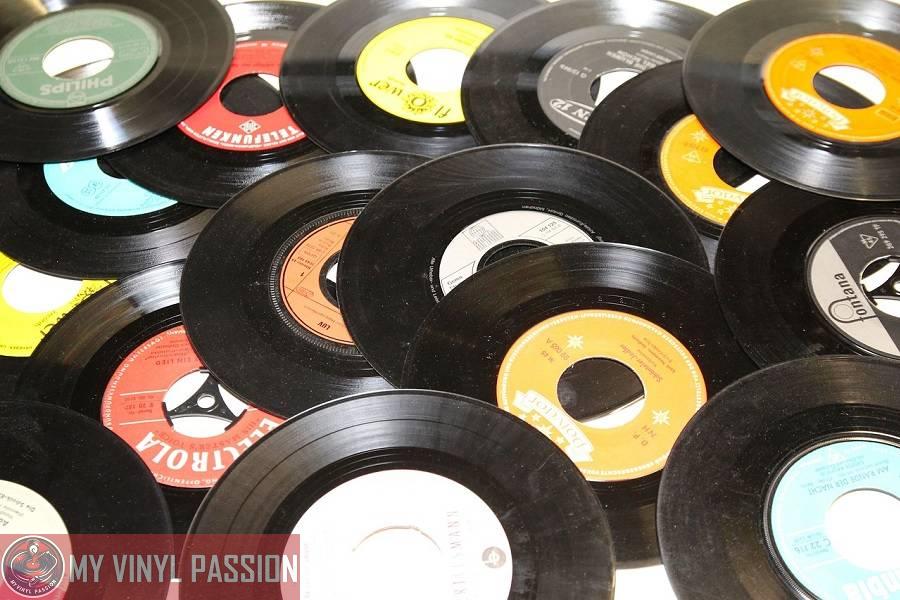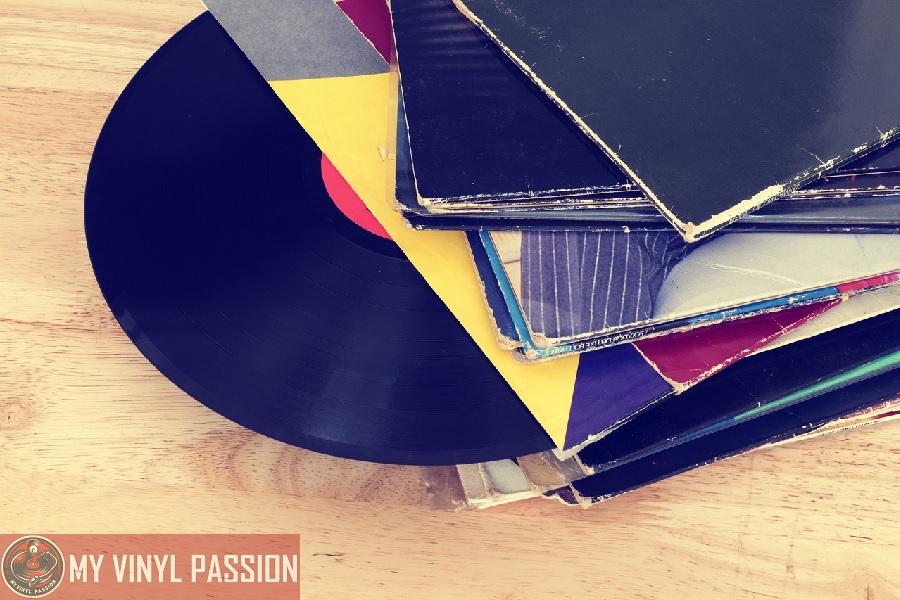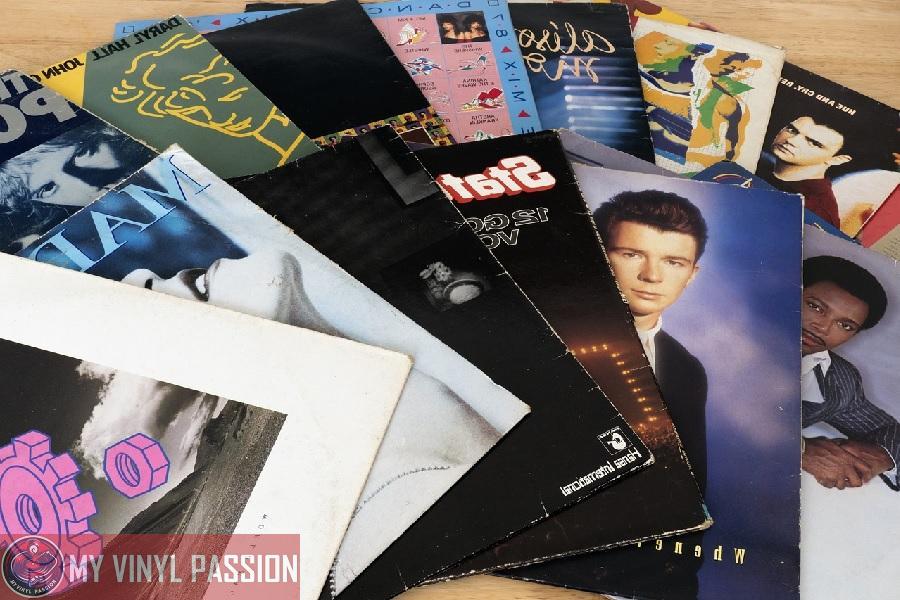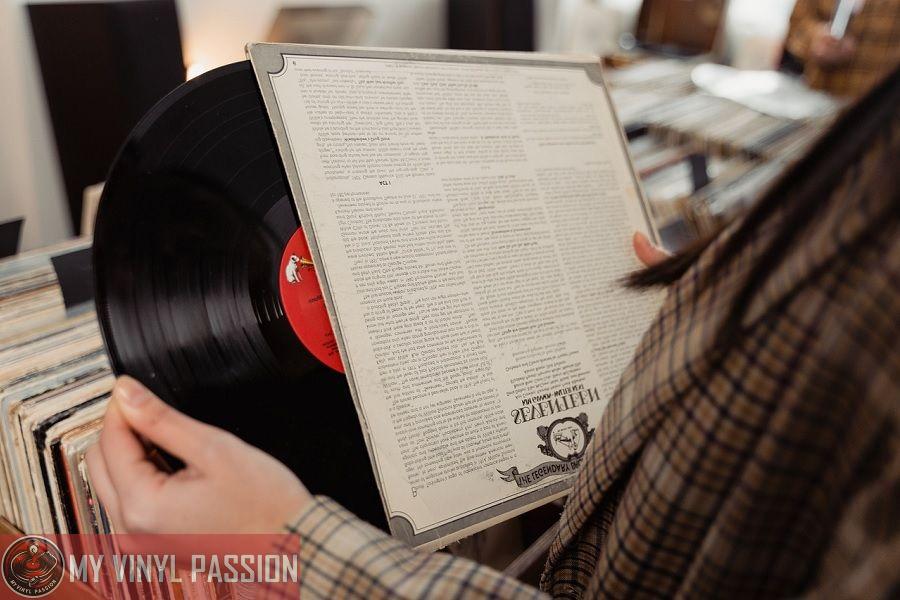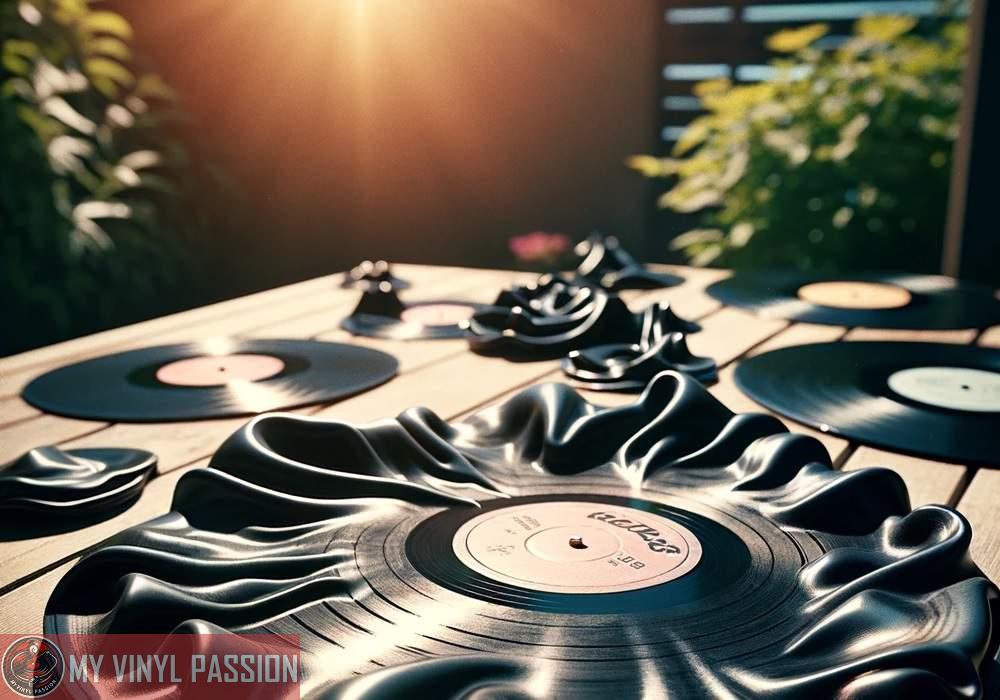When you come across the term “virgin vinyl,” you’re encountering a designation for vinyl that has never been used or processed before.
This kind of vinyl is prized for its purity and as a new material, it doesn’t contain any impurities or previously degraded polymer that could compromise its quality.
Particularly within the realm of vinyl records and high-end audio, virgin vinyl is sought after for its potential to provide a clearer and more accurate sound reproduction.
In Summary
Virgin vinyl refers to vinyl records made from entirely new, unused vinyl material, ensuring the highest quality and purity.
Records made from virgin vinyl often offer better sound quality, with less surface noise and higher fidelity, compared to recycled vinyl.
Virgin vinyl is more durable and less prone to warping or other damage, leading to a longer lifespan for the record.
While offering superior audio quality, virgin vinyl is less environmentally friendly than recycled vinyl due to the use of new materials.
Contrast this with recycled vinyl, which is made by melting down and reusing vinyl from various sources, including older records, scraps from production processes, or vinyl products that have reached the end of their life cycle.
While recycling vinyl is environmentally beneficial and often cost-effective, it can result in a final product that may be less durable or have inferior acoustic properties due to the mixture of different grades and ages of vinyl being combined.
Composition and Types of Vinyl
Vinyl, an incredibly versatile plastic, is manufactured in various forms. Your understanding of its composition and types is crucial for recognizing the different applications it can serve.
Virgin Vinyl and Recycled Vinyl
Virgin vinyl refers to new polyvinyl chloride (PVC) that has not been previously processed or used.
This type of vinyl is known for its purity and often exhibits superior performance characteristics due to its uncontaminated polymer structure. In contrast, recycled vinyl is made by repurposing scrap or used PVC.
Recycled vinyl can vary in quality depending on how the material is processed and the types of PVC products that are recycled.
Vinyl Resin and Polymer Composition
At the heart of vinyl products is the vinyl resin, which is a type of polymer. This polymer consists primarily of ethylene and chlorine.
When these elements combine, they form polyvinyl chloride or PVC—the third most widely produced synthetic plastic polymer. In its pure form, pure vinyl provides a range of applications due to its durability and resistance to moisture, though often additional compounds are added to enhance specific characteristics.
Remember, whether you’re considering pure, virgin vinyl for its premium qualities or recycled vinyl for its environmental benefits, the fundamental vinyl resin and polymer composition determine the performance and suitability for your applications.
Vinyl Production and Properties
Vinyl, particularly in the context of virgin vinyl, refers to new synthetic plastic polymer that has not been recycled. As you explore the qualities and production methods of vinyl, two significant aspects to consider are its behavior during extrusion and when subjected to environmental conditions.
Extrusion and Melting Point
Extrusion is a pivotal step in the manufacturing of vinyl where raw vinyl material is melted and formed into products.
The melting point of virgin vinyl typically ranges between 160 and 210 degrees Celsius (320 to 410 degrees Fahrenheit). This temperature allows the vinyl to be safely heated and extruded without degrading its intrinsic properties.
During this phase, your comprehension of the material’s heat tolerance is crucial for maintaining its integrity.
- Safety: Ensure the processing environment is controlled to prevent harmful gases that can be released at high temperatures.
- Moisture Sensitivity: Vinyl is hydrophobic, meaning it repels water, contributing to its durability and long lifespan.
UV Degradation and Chemical Resistance
Exposure to UV radiation can be detrimental to vinyl, causing it to break down and deteriorate over time. However, virgin vinyl is often treated with additives to improve its resistance to UV light, preserving its color and structure.
- UV Stabilizers: These are added to protect against the harmful effects of the sun, and they’re a reflection of the material’s resilience.
- Chemical Resistance: Vinyl boasts a high resistance to a variety of chemicals, enhancing your safety when it comes into contact with potentially harmful chemicals. This property makes it a preferred choice for plumbing, medical devices, and other sensitive applications.
Maintaining awareness of these attributes will help you better understand vinyl’s usability and potential in various industries.
Applications and Installation
When you think of virgin vinyl, it’s essential to consider the purity and robustness it brings to its applications, especially in flooring and construction, as well as the unmatched sound quality it provides for vinyl records.
Flooring and Construction
Virgin vinyl is highly sought after for its pristine condition and lack of previous processing, making it a top choice for your flooring and construction needs.
Installation of vinyl flooring is favored for its easy installation, often featuring a simple click-and-lock system that you can often undertake without professional help. This type of flooring can imitate the appearance of wood or stone, providing a cost-effective alternative with a similar aesthetic appeal.
In construction, extruded products from virgin vinyl, such as vinyl sheet piles, offer long-term durability — a detail noted in research about long-term applications of these materials. These piles are also notable for retaining their original appearance and structural integrity over time.
Vinyl Records and Sound Quality
For audiophiles, the sound quality of music emanating from vinyl records made of virgin vinyl is exceptionally valued.
Virgin vinyl provides a clearer and more authentic audio experience, as there’s less noise than records pressed from recycled vinyl. Your vinyl records’ sound quality is preserved in its purest form, as the absence of impurities means fewer chances of audio disturbances.
When it comes to vinyl records, the installation of a record onto a turntable is part of the tangible experience that music enthusiasts cherish. Virgin vinyl’s superior quality not only ensures a richer sound but also contributes to the longevity of your records, keeping them as timeless pieces in your collection.
Maintenance and Durability
When you invest in products made from virgin vinyl, you’re choosing materials known for their straightforward maintenance and commendable longevity. Virgin vinyl boasts resistance to various forms of wear and tear, making it a practical option for numerous applications.
Cleaning Procedures
Proper cleaning is key to maintaining the appearance and longevity of virgin vinyl. For routine upkeep, you should use a mixture of mild soap and water to wipe down the surface.
For tougher stains or mildew, a specialized vinyl cleaner is effective. Always rinse thoroughly with water after cleaning to avoid residue build-up. Avoid abrasive cleaners and tools, as they can damage the material and lead to discoloration.
Durability and Life Span
Virgin vinyl is designed for durability and can last many years with minimal maintenance. Its composition makes it less prone to fading, discoloration, and cracking compared to recycled vinyl.
You’ll appreciate that virgin vinyl products are typically quieter than other materials, as they can dampen noise more effectively. This robust material can withstand harsh weather conditions without significant degradation, making it an excellent choice for outdoor applications.
Remember that the life span of any virgin vinyl product is also influenced by the quality of installation and the level of ongoing maintenance.
Environmental Impact and Cost Efficiency
When considering vinyl products, you face a critical choice between eco-friendly practices and cost-efficiency. 100% virgin vinyl is often contrasted with recycled vinyl options, each with distinct environmental impacts and cost implications.
Eco-Friendly Practices
Pure, 100% virgin vinyl is known for its smooth groove and high performance, but it does come with a higher environmental footprint.
Contrary to this, recycled vinyl directly reduces the need to produce new material, thus saving energy and decreasing pollution. Adopting eco-friendly practices such as ecodesign not only mitigates the environmental impact but can also lead to significant cost decreases in production and assembly.
Recent studies highlight that the use of ecodesign can bring about cost reductions, while simultaneously benefiting the environment.
Price Comparison
The initial purchase price of 100% virgin vinyl may be higher than that of recycled options. However, when you factor in the longevity and the durability of virgin vinyl, the long-term costs could potentially be lower, ensuring you get a performance without frequent replacements.
Conversely, recycled vinyl tends to be less expensive upfront and is a viable option if you prioritize immediate cost savings.
An economic evaluation suggests that using recycled materials in production can yield cost savings ranging from 20 to 40 percent over using solely new materials.
FAQs
What exactly is virgin vinyl?
Virgin vinyl is a term used to describe vinyl records made from 100% new, unrecycled PVC (polyvinyl chloride) material, ensuring a higher purity level compared to records made from recycled vinyl.
How does virgin vinyl affect the sound quality of records?
Records made from virgin vinyl typically exhibit superior sound quality with clearer audio, fewer impurities, and less surface noise than those pressed from recycled vinyl.
Are virgin vinyl records more expensive than regular records?
Yes, virgin vinyl records can be more expensive due to the cost of using new, pure vinyl material as opposed to cheaper recycled alternatives.
Can I visually distinguish a virgin vinyl record from a regular one?
Visually, it can be challenging to distinguish between virgin and recycled vinyl; the key differences lie in the sound quality and the physical condition over time.
Is virgin vinyl better for the environment than recycled vinyl?
From an environmental perspective, virgin vinyl is less eco-friendly compared to recycled vinyl, as it requires the use of new resources and contributes to higher plastic production.
